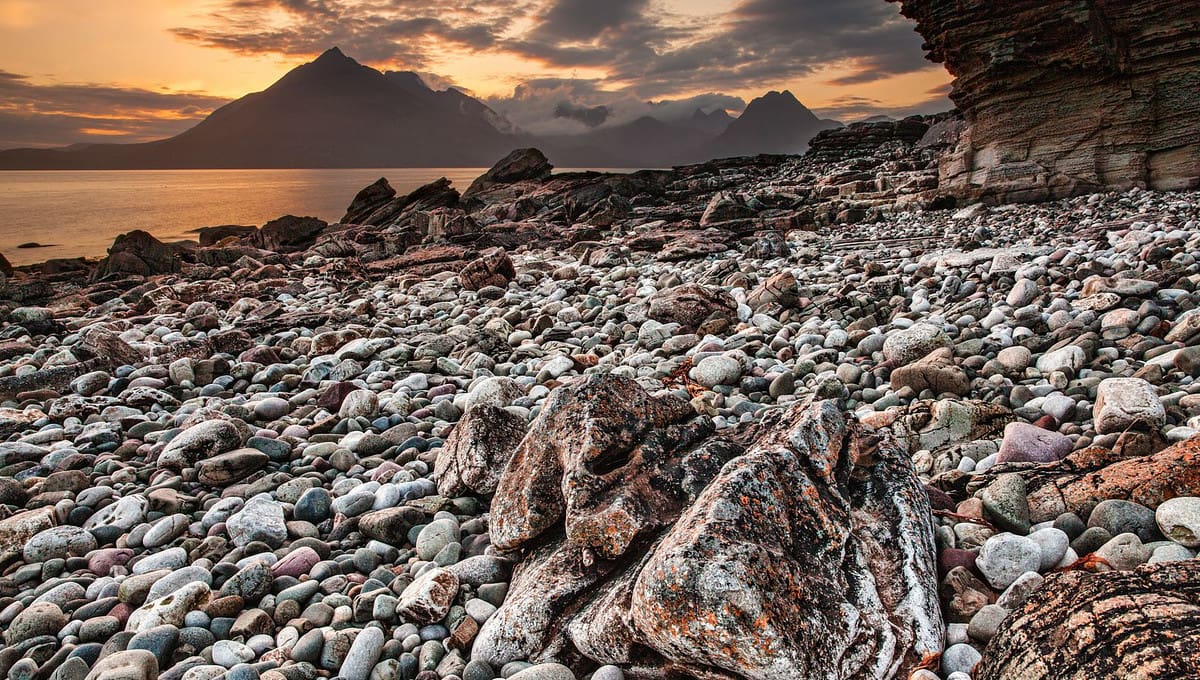The Pile of Rocks: A Camino Reflection
I picked up a rock from the shore of Lake Superior to leave on a mountain in the north of Spain. That’s normal, right?

This wasn’t just any rock. It was the most-perfect skipping rock, and though Lake Superior produces many skipping rocks, this one fit my hand just right. It fit so well, in fact that I decided not to throw it. I held onto it. It was flat and smooth, and it fit perfectly in the space between my thumb and my curved index finger. I’m sure you’ve found one like this too, but I’ll bet you threw yours. Why wouldn’t you? Well don’t worry, because I let go of mine too, just in a different way.
At some time between that day I picked it up and the day I put it in my backpack, it seemed that I got around to writing “Go!” on it in black permanent marker. Now I can’t be sure when or why I originally wrote it, but it always reminded me of a certain message I received as a child. The gist of the message was that I was meant to go out into the world, to be sent, to take courage in the missions I would have. (My second name is “Paul” after all!) I’d like to say that I did the best I could to respond to this message, to this calling.
Despite my best effort (and sometimes because of no effort at all), I fell short of this calling in some pretty specific ways, and having just finished three years of graduate theological education this spring, I’d like to think that I had a grasp on at least one of the roots of these shortcomings. So knowing I would have a special opportunity at the Cruz de Ferro (the Iron Cross) on the pilgrimage to Santiago de Compostela in Spain to leave a rock representing something I wanted to let go, I put my skipping rock in my backpack.
I finally approached the Cruz de Ferro after three weeks of walking, and while it was emotional to say my prayers and let go of that rock and what it represents, what happened next was most meaningful for me.
Here I was, a pilgrim from across the globe who just set his rock on top of the huge pile of rocks from all the other pilgrims who did the same for ages. I sat in the shade a little way off to be silent for a moment and lift up my fellow pilgrims. It was that moment when I started to put it together. This isn’t just an individual practice someone does on the top of a mountain in the north of Spain. It’s an ongoing communal ritual of leaving our lives in the hands of God, who overcame death and so too will ultimately transform whatever each rock represents. As a symbol of that truth, we let go of our rocks while walking on other people’s rocks. Millions of pilgrims doing that along with the sun and rain, snow and ice, breaks down these rocks. We participate in God returning all of our shortcomings back into right relationship with God precisely through this act and whenever we have the chance to act righteously. I’m thinking about the Eucharist, the Beatitudes, and Works of Mercy among others.
On that mountain in Spain, at the Iron Cross, I realized that being one of the millions that trample these rocks means that I’m contributing to break them down. When they break down, they can combine with organic material to make fertile soil for plants to grow. This tells me a little something about the Reign of God.
The Reign of God is like a pile of sorrows trampled by a million pilgrims, which transforms it into the fertile soil of New Life. May it be so.







I love the image of the rocks being crushed and turned into fertile ground for new life.
I picked up my rock along The Way. I’m not even sure I can put into words what I left behind at the Cruz de Ferro with that rock. I know that I returned home changed in many ways. I hope to walk again — and if I once again follow the Via Frances, no doubt I will leave other things behind at the cross.